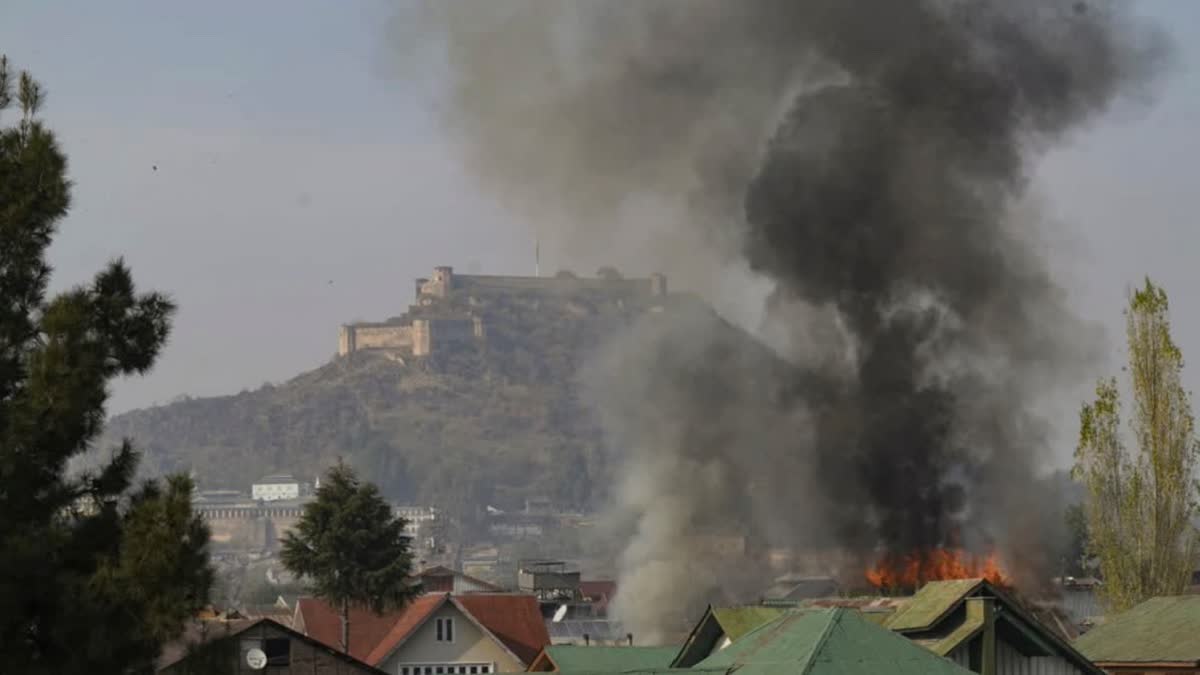Srinagar: Jammu and Kashmir witnessed a sudden spike in militancy-related violence and encounters following the successful conduct of assembly elections in the region, particularly after Omar Abdullah assumed charge as the union territory’s maiden chief minister last month.
The high-stakes polls witnessed significant voter turnout across the UT and concluded with the National Conference getting the magic numbers and forming the government. Held in multiple phases from September 18 to October 28, the elections were the first since the abrogation of Article 370, which gave the region special constitutional status.
With incidents like the grenade attack at Srinagar's Sunday market, the ambush on an army convoy near Gulmarg in Baramulla, and the targeted attack at a private company's camp in the Ganderbal district that killed six construction workers and a doctor, violence seems to have returned to its past darker phase in the valley.
Casualties reported in these incidents included civilians, security force personnel, and militants. At least 18 people were killed in militancy-related incidents across the UT in October, while November saw more killings so far than total killings last month.
Officials say that in seven major incidents across the region in October, the total death toll included 10 civilians, two security personnel, and six militants. Although official figures for November are yet to be compiled, media reports say that at least 11 major incidents of violence and encounters took place this month so far in which over 16 persons were killed, including civilians.
At least three encounters also took place in the last 24 hours, including one in Kishtwar, second in Baramula’s Sopore, and third in the Zabarwan Forest area of Srinagar. An army officer was killed in Kishtwar while a militant was killed during the Sopore encounter.
On Friday, police recovered the bodies of two Village Defence Guards, who were abducted and later killed by unidentified militants in Kishtwar, highlighting the ongoing security concerns in the UT.
A senior police officer attributed the surge in attacks to attempts by militant groups to disturb peace. “After the successful conduct of Assembly elections in J&K, militants are again trying to disturb the region's peace. Security forces, with enhanced technological and human surveillance, are foiling these plans, but the militants have resorted to targeting both local and non-local civilians," he had told ETV Bharat, wishing anonymity.
He added that security had been beefed up across the sensitive places, particularly infrastructural projects.
Sharing details of October's major incidents, the official said: “On October 5, security forces thwarted an infiltration attempt along the Line of Control (LoC) in Gugaldhar area (north Kashmir's Kupwara district), resulting in the killing of two militants. The infiltration attempts continued on October 19, when another militant was killed by security forces in the Kamalkote area (Uri) of north Kashmir's Baramulla district.”
The official further said, “The attacks escalated on October 18 with the shooting of Ashok Chauhan, a 30-year-old non-local from Bihar, by unidentified militants in Wandana Melhora area (south Kashmir's Shopian district). This incident underscored the targeted nature of recent attacks against civilians, particularly non-locals."
October's deadliest militancy-related incident occurred on October 20 in the Gagangeer area near the Z-Morh tunnel (Central Kashmir's Ganderbal district). According to the official, militants from The Resistance Front (TRF), an offshoot of the Lashkar-e-Toiba (LeT) killed Dr Shahnawaz, a local doctor, and six labourers, a mix of local and non-local workers, including Faheem Nazir, Kaleem, Mohammad Hanif, Shashi Abrol, Anil Shukla, and Gurmeet Singh. Five others were injured.
